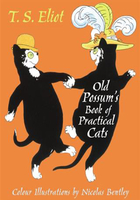There was a story about the Graces, a story so woven into the fabric of the town that even my mother had already heard about it from someone at work. It was about Thalia and Fenrin's eighth birthday party.
Grace birthday parties had been legendary up until then. Most of the mothers around town would pray that their child would get an invitation, so they could come, too, and lounge in Esther Grace's spacious French country kitchen, drinking cocktails in slender flutes and stealing glances at her pretty husband, Gwydion, as he passed by with his easy, loping stride.
The party had been fairly standard all afternoon. The mothers had put on their most carefully chosen outfits, their most vibrant shades of lipstick, and had lingered in the kitchen drinking freshly made mojitos with mint from Esther's sprawling herb garden. Their tinkling laughter had grown stronger as the day wore on, and they had stopped checking on the children so often, who had had their fill of food and party games and were congregating in the parlor. The Graces had the kind of house with a parlor.
No one knew for sure who suggested the Ouija board, but most of the children thought it was Fenrin. He was a show-off, after all. They'd been strictly forbidden to touch it, but that didn't stop him from producing the key to the cabinet it was stored in and balancing carefully on a chair to reach the highest shelf. Down it came, a solid shape wrapped in a rust-colored velvet cloth and bound with loops of black ribbon. When the ribbon was undone and the velvet unraveled, there sat a sandal-wood box that gave off a creamy wood smell when you put your nose right up to it.
Half the children felt their hearts quicken in fear. Because what if? But Fenrin just laughed at them and said there was no such thing as ghosts, and did they want to play or did they want to be sissies for the rest of their lives?
So they played—every last one of them.
For the truth of what happened next, you'd have to talk to the parlor walls. Accounts varied so wildly from child to child, no one ever did know for sure exactly how it had played out.
When the adults heard screaming, they rushed into the parlor and found Matthew Feldspar on the floor, his eyes shut and his breathing shallow. No matter how violently his mother shook him, he wouldn't wake up.
He was rushed to the hospital.
By the time they arrived he had come to, and the doctor who examined him assured his mother that he exhibited no signs of physical abuse. Tests turned up nothing unusual, and the eventual conclusion was that he had suffered a fainting fit of some kind. Perhaps he hadn't eaten enough that day. Perhaps it was a reaction to all the excitement a birthday party could bring.
Mrs. Feldspar, however, was not having any of that. She was adamant that Matthew was not a weak boy, and had never fainted in his life. She much preferred the idea that something had been done to him, something that a doctor wouldn't be able to see. Something only the child of a witch could inflict. Accusations flew around for weeks afterward. Some said it was revenge—Matthew had a reputation for spreading rumors, as well as for goosing other kids to make them cry. He'd apparently done it to Fenrin only a couple of weeks before, and then told everyone Fenrin had enjoyed it just a bit too much. Fenrin had tried to punch him in gym class and earned detention for it. After that, things seemed to have died down. Until the birthday party.
Mrs. Feldspar said that Matthew was a playful boy, that was all. She tried to press criminal charges, but the police laughed at her. She tried to sue the Graces, but lawyers told her there was no evidence of any kind of assault on her son, and without evidence she didn't have a case.
The Feldspars left town not long after that.
No one was allowed to go to Fenrin and Thalia's ninth birthday party; but instead of feeling snubbed, the Graces went right ahead with it, inviting a whole swathe of people from out of town. For days before, you could see them arriving at the house. Some of them looked like rock stars and some of them like American Psycho, a few were as coolly bohemian as the Graces, and all of them were striking, in one way or another.
The twins' birthday was August 1, and if you went past the top of their lane on that day, you could hear music and laughter coming from the garden, and smell ginger carrot cakes with cream cheese frosting, sausages in mustard sauce, and freshly made lemonade.
Every year Thalia and Fenrin had their birthday party, but no one from school ever got another invitation. Two or three days before, the town was flooded with Grace strangers, and two or three days afterward they were gone again. The most popular rumor was that they were witches from around the country gathering for some kind of debauched ritual. The birthday was an excuse, the town whispered—after the children went to bed, the adults held their own, darker kind of party.
For a long time after that unpleasant eighth birthday, anything that went wrong was blamed on August 1. It started as a joke between the town adults: "Stubbed your toe? Must be the Graces' fault." This was taken on by their children and woven into scary fact. For instance, one year, old Mrs. Galloway had fallen down for no reason and died the next day, not a week after August 1. Another year, a fire in the school gym happened August 2. And how would a gym just catch fire like that? Another year, four separate kids came back to school in September with their parents' recent decisions to divorce hanging over their heads like leprosy. Something bad happened every single year after Fenrin and Thalia's birthday, without fail.
It was the town's own Friday the 13th. It was their punishment for judging them.















